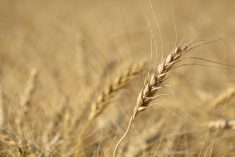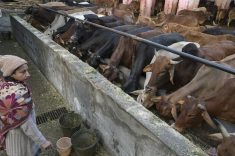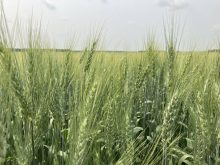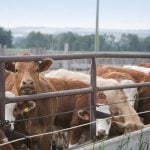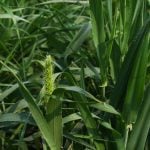TOFIELD, Alta. – One family believed the time was right to sell the sheep flock. Another hoped the time was right to jump into the sheep business.
A recent auction sale brought them together.
After 15 years Richard and Charlene Schultz of Hay Lakes, Alta., sold their flock of 220 bred North Country Cheviot cross ewes, a few rams and two guardian dogs at Beaver Hill Auction’s regular sheep sale on Feb. 26.
Ronald Den Broeder of Barrhead bought most of the flock.
The Schultz flock made up the largest portion of the 500 bred sheep and goats sold at the auction, one of the largest sales of the season.
Read Also
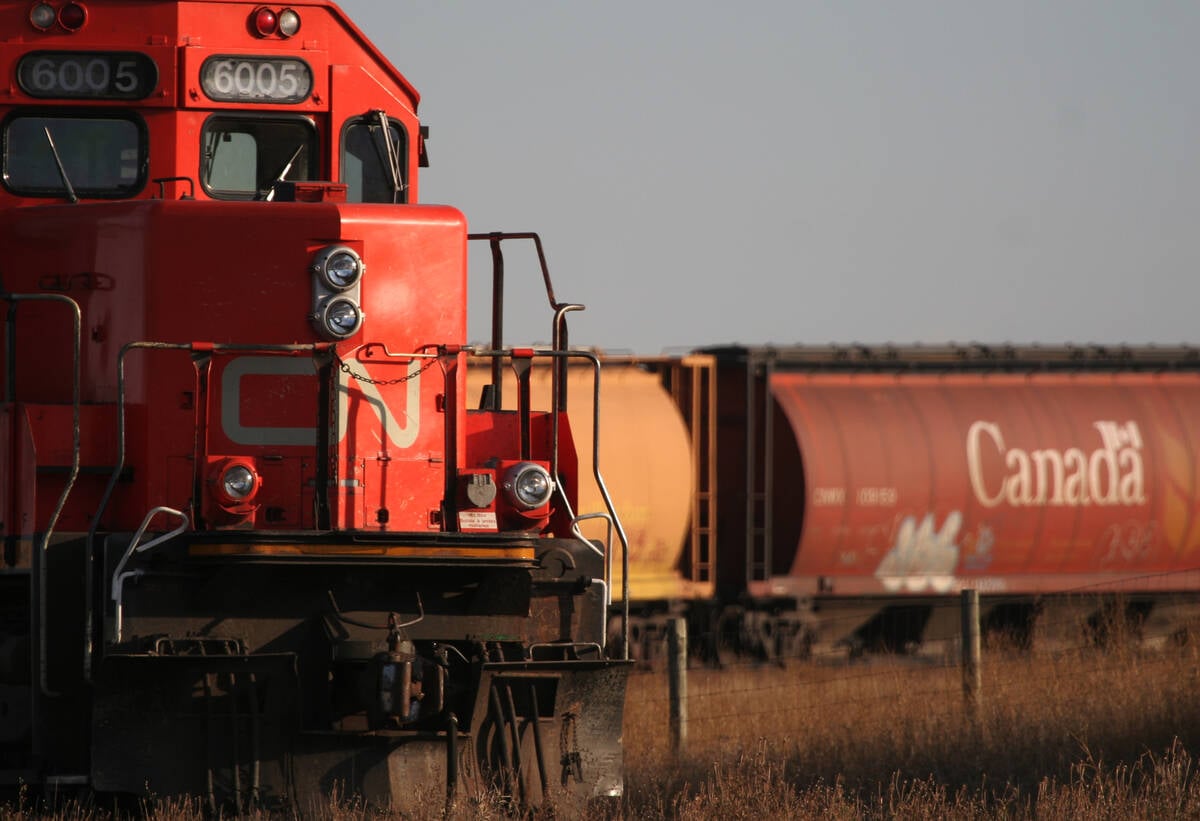
Canada-U.S. trade relationship called complex
Trade issues existed long before U.S. president Donald Trump and his on-again, off-again tariffs came along, said panelists at a policy summit last month.
Prices for the flock, which once starred in a television lottery commercial, ranged from $160 to $200, averaging $175.
Richard Schultz hoped his ewes would bring $200 a piece.
“I’m disappointed, but I can’t complain. It’s an auction,” he said.
After their main guardian dog died this summer, the family fought a losing battle against coyotes sneaking in to kill their sheep.
“We have an exceptional amount of problems with coyotes,” said Schultz, whose farm borders a 35,000 acre wilderness park southeast of Edmonton.
“It’s with great heartbreak we sold the flock.”
Schultz, a Baptist minister, also has 500 head of cattle and 1,000 acres of hayland.
Despite the coyote troubles, Schultz believes there’s potential in the sheep business.
Den Broeder also believes sheep are an agricultural business with a future. Cattle markets are poor and grain is an expensive venture, but he said he can pencil a profit with sheep.
“I think it’s the only alternative right now.”
For the past few years Den Broeder has raised grain fed veal calves for Sunterra Meats. With that program ending, he felt a switch to sheep was a natural transition.
“We have facilities set up for calves and it’s easy to switch them over to sheep,” he said.
With a goal of buying 500 head this year, he said the price he paid for the 200 bred ewes was “up there.”
Miles Buswell, manager of Beaver Hill’s sheep and goat sale, said the price paid for quality bred ewes should have been higher. Last fall quality open ewes sold for the same price.
“A guy wasted five months of feed,” Buswell said. “There should have been $25 to $40 more to compensate for feed.”
Overall, prices were down at the sale, partly in response to the arrival of new crop lambs.
“Feedlots are not too interested in owning that kind right now,” Buswell said.
For full auction results, see the livestock report.
Buswell said the main reason for the soft market was because Roy Leitch, Canada’s largest sheep and goat buyer, didn’t attend the sale. He sent order buyers to buy for him, Buswell said, but without the same confidence.
“It’s never like having the man there. He adds $5 to $10 on to the sale.”
Robin Lussier of Devon, Alta., came to the auction to buy Boer goats. Tired of the labour hassles in Alberta’s construction industry, he thinks goats would be less trouble.
“I just like the goats,” said Lussier, who thought prices were strong.
“I think prices are good. It’s bad for buying and good for selling.”
Sheep buyer Dave Twitchell of Camrose thought prices on average were good, considering the high price of grain needed to feed the animals.
“For the price of grain I think prices are pretty darn good,” said Twitchell, who had homes for the fat and cull sheep.




